BMW X5 VS Hyundai i20 – Specs, Efficiency & Price Comparison
Which model is the better choice – the BMW X5 or the Hyundai i20? We compare performance (625 HP vs 100 HP), boot capacity (650 L vs 352 L), efficiency (0.80 L vs 5.20 L), and of course, the price (77100 £ vs 17400 £).
Find out now which car fits your needs better!
The BMW X5 (SUV) is powered by a Diesel MHEV, Petrol MHEV or Plugin Hybrid engine and comes with a Automatic transmission. In comparison, the Hyundai i20 (Hatchback) features a Petrol MHEV or Petrol engine and a Automatic or Manuel gearbox.
When it comes to boot capacity, the BMW X5 offers 650 L, while the Hyundai i20 provides 352 L – depending on what matters most to you. If you’re looking for more power, you’ll need to decide whether the 625 HP of the BMW X5 or the 100 HP of the Hyundai i20 suits your needs better.
There are also differences in efficiency: 0.80 L vs 5.20 L. In terms of price, the BMW X5 starts at 77100 £, while the Hyundai i20 is available from 17400 £.
Compare all the key specs now and find out which model fits your lifestyle best!
BMW X5
The BMW X5 embodies a perfect blend of luxury and performance, offering a driving experience that is both dynamic and comfortable. Its elegant design is complemented by a spacious, high-quality interior that prioritises driver and passenger comfort. Advanced technology features ensure that the X5 meets the demands of modern drivers, providing both entertainment and safety on the road.
details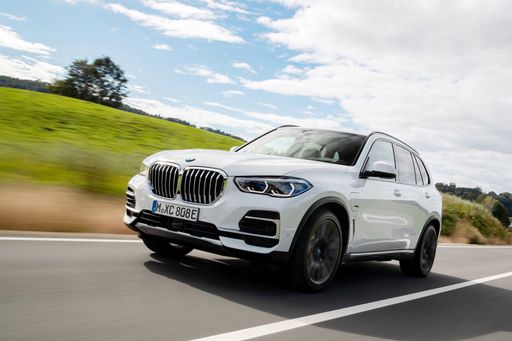 @ press.bmwgroup.com
@ press.bmwgroup.com
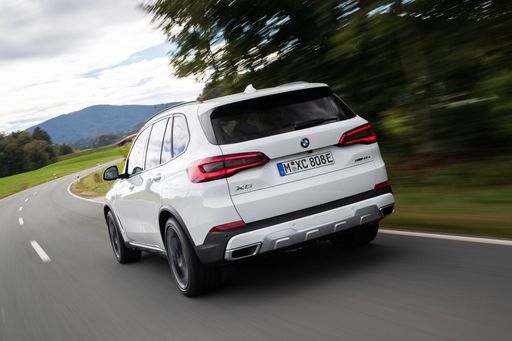 @ press.bmwgroup.com
@ press.bmwgroup.com
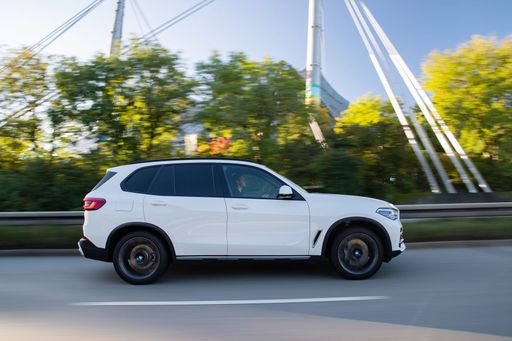 @ press.bmwgroup.com
@ press.bmwgroup.com
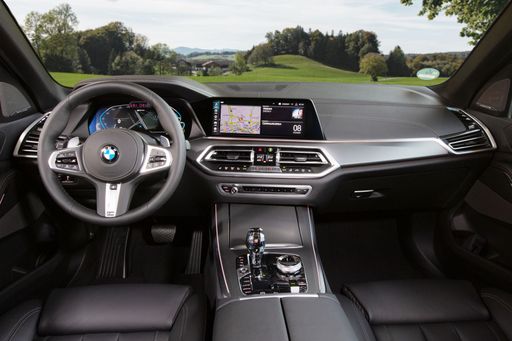 @ press.bmwgroup.com
@ press.bmwgroup.com
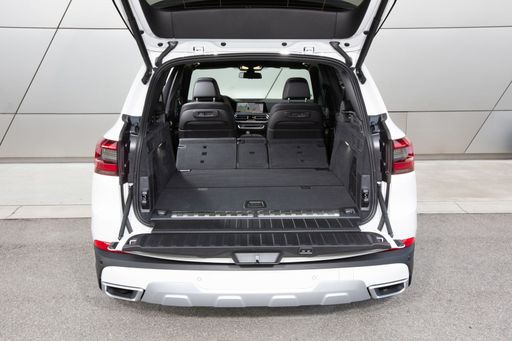 @ press.bmwgroup.com
@ press.bmwgroup.com
Hyundai i20
The Hyundai i20 impresses with its sleek design and modern aesthetics, making it a stylish choice in the compact car segment. Its interior is thoughtfully designed, offering comfort and advanced technology for a pleasurable driving experience. The vehicle also stands out with its efficient performance and agile handling, making city driving a breeze.
details @ hyundai.news
@ hyundai.news
 @ hyundai.news
@ hyundai.news
 @ hyundai.news
@ hyundai.news
 @ hyundai.news
@ hyundai.news
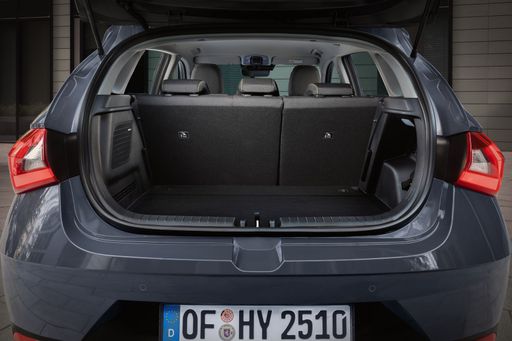 @ hyundai.news
@ hyundai.news

|

|
|
|
|
Costs and Consumption |
|
|---|---|
|
Price
77100 - 143500 £
|
Price
17400 - 24000 £
|
|
Consumption L/100km
0.8 - 12.9 L
|
Consumption L/100km
5.2 - 5.3 L
|
|
Consumption kWh/100km
-
|
Consumption kWh/100km
-
|
|
Electric Range
105 km
|
Electric Range
-
|
|
Battery Capacity
25.70 kWh
|
Battery Capacity
-
|
|
co2
19 - 291 g/km
|
co2
119 - 121 g/km
|
|
Fuel tank capacity
69 - 83 L
|
Fuel tank capacity
40 L
|
Dimensions and Body |
|
|---|---|
|
Body Type
SUV
|
Body Type
Hatchback
|
|
Seats
5
|
Seats
5
|
|
Doors
5
|
Doors
5
|
|
Curb weight
2240 - 2495 kg
|
Curb weight
1088 - 1190 kg
|
|
Trunk capacity
500 - 650 L
|
Trunk capacity
352 L
|
|
Length
4935 - 4948 mm
|
Length
4065 - 4075 mm
|
|
Width
2004 - 2015 mm
|
Width
1775 mm
|
|
Height
1755 - 1765 mm
|
Height
1450 - 1455 mm
|
|
Payload
565 - 705 kg
|
Payload
450 - 472 kg
|
Engine and Performance |
|
|---|---|
|
Engine Type
Diesel MHEV, Petrol MHEV, Plugin Hybrid
|
Engine Type
Petrol MHEV, Petrol
|
|
Transmission
Automatic
|
Transmission
Automatic, Manuel
|
|
Transmission Detail
Automatikgetriebe
|
Transmission Detail
Automat. Schaltgetriebe (Doppelkupplung), Schaltgetriebe
|
|
Drive Type
All-Wheel Drive
|
Drive Type
Front-Wheel Drive
|
|
Power HP
298 - 625 HP
|
Power HP
79 - 100 HP
|
|
Acceleration 0-100km/h
3.9 - 6.1 s
|
Acceleration 0-100km/h
11.1 - 13.7 s
|
|
Max Speed
233 - 250 km/h
|
Max Speed
166 - 183 km/h
|
|
Torque
540 - 750 Nm
|
Torque
113 - 200 Nm
|
|
Number of Cylinders
6 - 8
|
Number of Cylinders
3 - 4
|
|
Power kW
219 - 460 kW
|
Power kW
58 - 74 kW
|
|
Engine capacity
2993 - 4395 cm3
|
Engine capacity
998 - 1197 cm3
|
General |
|
|---|---|
|
Model Year
2023 - 2024
|
Model Year
2024
|
|
CO2 Efficiency Class
G, B
|
CO2 Efficiency Class
D
|
|
Brand
BMW
|
Brand
Hyundai
|
BMW X5
The BMW X5: Setting the Benchmark for Performance and Luxury
As one of the pioneers in the luxury SUV segment, the BMW X5 continues to set new standards with its blend of performance, comfort, and cutting-edge technology. The latest iterations offer a range of powerful engines, advanced hybrid systems, and a suite of innovative features that cement its status as a premium choice for discerning drivers.
Engine Power and Hybrid Innovations
The BMW X5 is available with a choice of robust powertrains, including diesel, petrol, and plug-in hybrid options. The range-topping models showcase impressive power outputs, with the potent X5 M Competition boasting 625 PS. Meanwhile, the plug-in hybrid models, such as the xDrive50e, demonstrate BMW's commitment to sustainability by offering remarkable efficiency with an electric-only range of up to 97 km and a CO2 efficiency class of as low as 21 g/km.
Technological Advancements
The 2023-2024 BMW X5 integrates state-of-the-art technology to enhance the driving experience. The latest versions come equipped with a Steptronic Sport automatic transmission system, ensuring seamless gear shifts and optimal performance. The xDrive all-wheel-drive system guarantees superior traction and control, regardless of the driving conditions, making it perfect for both urban environments and off-road adventures.
Design and Dimensions
With sleek exterior dimensions, the BMW X5 exudes an aura of elegance and power. Measuring up to 4948 mm in length, 2004 mm in width, and up to 1765 mm in height, it presents a commanding road presence. Inside, the SUV offers ample space with a boot capacity ranging from 500 to 650 litres, ensuring that you have all the room needed for both everyday items and larger cargo.
Comfort and Interior Features
The X5's interior is a masterclass in luxury and functionality, designed to offer maximum comfort for all occupants. With seating for five, the cabin is crafted with the finest materials and hosts a range of technological features, including an advanced infotainment system and intuitive cockpit controls. The M Sportpaket configurations further enhance the vehicle's sporty pedigree with premium equipment and design details.
Performance and Handling
The BMW X5 demonstrates impressive dynamics, with acceleration from 0-100 km/h achievable in just 3.9 to 6.1 seconds, depending on the model. Its powerful engines and sport-tuned suspension provide exceptional agility and stability, making the X5 not only a comfortable cruiser but also a thrilling performer on twisty roads.
Economical Considerations
Despite its premium offerings, the BMW X5 is designed with efficiency in mind. Fuel consumption figures for the X5 range from 0.9 to 12.9 L/100 km across different powertrains, providing options for varying needs and driving styles. The monthly costs to run a BMW X5 range from €2070 to €3383, underlining its position as a luxury SUV option with significant value.
Conclusion
The BMW X5 remains a formidable contender in the luxury SUV market, thanks to its amalgamation of power, efficiency, and advanced technology. With a host of choices in terms of engine types and trim levels, there's an X5 to suit the preferences of any driver looking for excellence without compromise. It's not just a vehicle; it's a statement of refined performance.
Hyundai i20
Introducing the Hyundai i20: A Blend of Style and Efficiency
The Hyundai i20 has been a favourite in the subcompact car segment, loved for its innovative features and reliable performance. In its latest versions, the i20 continues to impress with a perfect balance of aesthetics and functionality. Below, we dive into the technical details that make the Hyundai i20 a compelling choice for modern drivers.
Powertrain and Efficiency: Where Performance Meets Economy
The Hyundai i20 lineup offers an array of engine options, ranging from a 1.0-litre T-GDI petrol engine to the energetic 1.0-litre T-GDI 48V hybrid. These engines generate between 100 PS to a remarkable 204 PS in the N Performance variant. The incorporation of a mild-hybrid system improves fuel efficiency, with consumption as low as 5.1 L/100 km.
With both automatic and manual transmissions available, drivers can enjoy crisp gear shifts and a smooth driving experience. Front-wheel drive ensures nimble handling, making city and motorway drives equally enjoyable.
Design: Compact in Form, Grand in Appearance
The Hyundai i20 showcases a sleek hatchback design with dimensions that perfectly blend urban agility with interior spaciousness. Measuring between 4065 mm to 4075 mm in length, and with a width of 1775 mm, it offers a roomy cabin while maintaining a compact silhouette. The bold grille and stylish LED headlights contribute to its modern, athletic look.
Advanced Features and Technology
Innovation is at the heart of the Hyundai i20's appeal. It comes equipped with an impressive suite of technological features designed to enhance the driving experience. This includes a state-of-the-art infotainment system, which provides seamless connectivity through both Apple CarPlay and Android Auto.
The Hyundai SmartSense package is offered for peace of mind, with a suite of safety features like Forward Collision-Avoidance Assist and Lane Keeping Assist. These technologies ensure that you stay safe and in control, whether navigating city streets or hitting the open road.
Performance Variants: The Hyundai i20 N
For those who crave thrill, the i20 N variant doesn't disappoint. With 204 PS and a 6.2-second acceleration from 0 to 100 km/h, this hot hatch is designed for pure driving pleasure. It features an enhanced suspension setup and a range of performance-focused enhancements.
The i20 N embodies a spirit of adventure with its distinctive design cues and sporting credentials, perfect for enthusiasts who appreciate both performance and aesthetics.
Interior Comfort and Practicality
The interior of the Hyundai i20 is equally striking, with high-quality materials and a thoughtful layout that prioritises driver comfort and convenience. The cabin comfortably seats five passengers, while the boot offers a generous 352 litres of luggage space.
With an array of trim levels available, including N-Line and Prime, buyers can tailor the i20 to their tastes, ensuring they enjoy both luxury and practicality.
Final Thoughts: A Car Built for Modern Needs
The Hyundai i20 is more than just a car; it's a statement of style, efficiency, and innovation. Whether you're navigating busy urban streets or embarking on a road trip, the i20 is designed to meet the needs of contemporary drivers. With its range of engines, innovative features, and stylish design, the Hyundai i20 stands out in its class as a well-rounded and highly appealing choice.
The prices and data displayed are estimates based on German list prices and may vary by country. This information is not legally binding.
